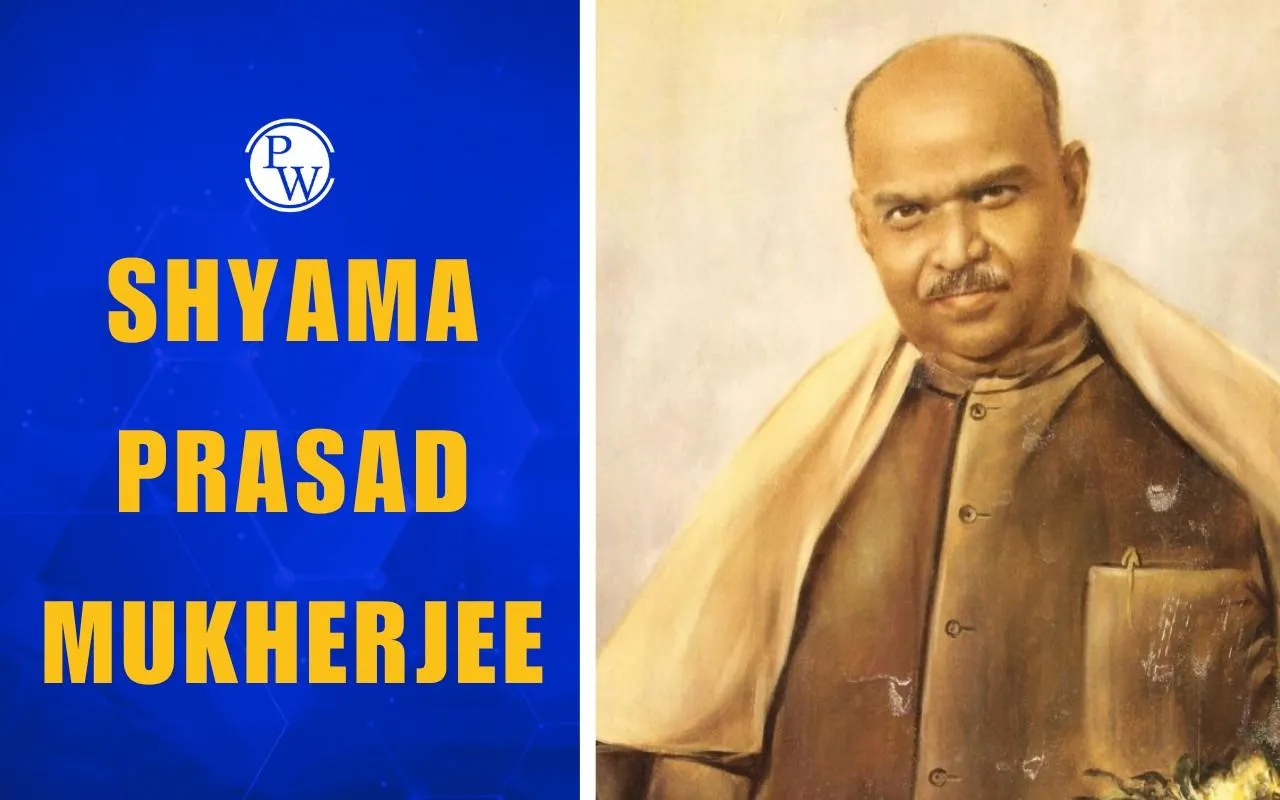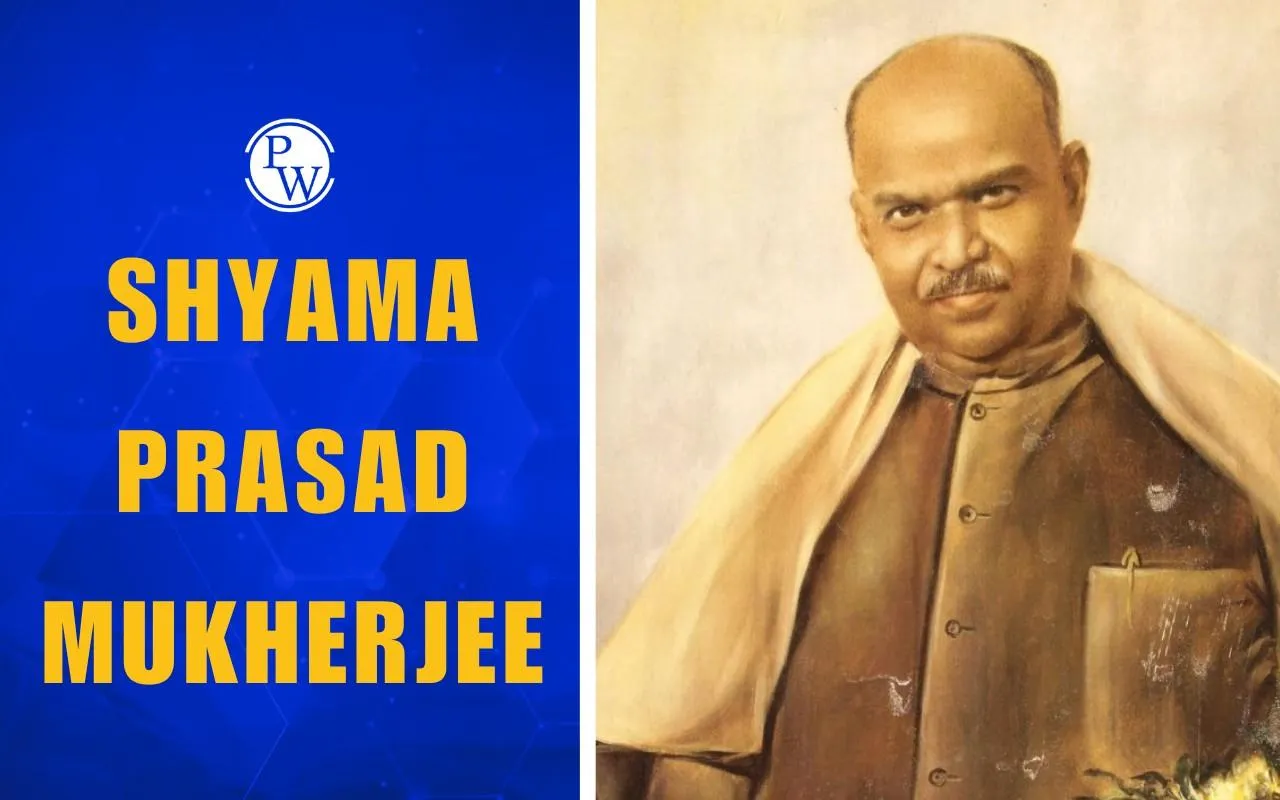

Shyama Prasad Mukherjee was a prominent figure in Indian history. He was a politician, educationist, and freedom fighter who worked for the unity of the country. Shyama Prasad Mukherjee played an important role in shaping India’s education system and political structure after independence. He strongly opposed the implementation of Article 370, which gave special status to Jammu and Kashmir.
Shyama Prasad Mukherjee Overview
Shyama Prasad Mukherjee was born on July 6, 1901, in present-day Kolkata, West Bengal. He belonged to an affluent family of teachers and scholars.
-
Shyama Prasad Mukherjee’s father, Sir Ashutosh Mukherjee, was a famous educationist and the Vice-Chancellor of Calcutta University.
-
Mukherjee completed his education and later became one of the youngest Vice-Chancellors of Calcutta University. He worked to improve the education system in India and focused on providing quality education to each and every student.
-
He went on to become an important leader and later founded the Bharatiya Jana Sangh, which is known today as the Bharatiya Janata Party (BJP).
Shyama Prasad Mukherjee Biography
Shyama Prasad Mukherjee was born into a Bengali Hindu family. His father, Sir Ashutosh Mukherjee, was a respected judge and academician, and his mother, Jogmaya Devi, was known for her wisdom and kindness.
-
Shyama Prasad Mukherjee studied at Mitra Institution School and later took admission into Presidency College, Calcutta, where he earned his B.A. (Hons.) in English in 1921.
-
He then completed his Master’s degree in 1923. He was deeply interested in learning and later went on to study law at Lincoln’s Inn, London.
-
After returning to India, he started teaching and became deeply involved in education. In 1934, he became one of the youngest Vice-Chancellors of Calcutta University.
-
As Vice-Chancellor, Mukherjee worked to include Indian languages and culture in the education system. He wanted education to help students become responsible citizens. He believed that education should build character, not just provide jobs.
-
Mukherjee’s political journey began in the 1930s. He joined the Indian National Congress but left soon after due to differences in opinion. Later, he became associated with the Hindu Mahasabha, where he worked for national unity and Hindu social upliftment.
-
During World War II, he opposed British policies that harmed India. Later, he joined the interim government led by Pandit Jawaharlal Nehru as the Minister for Industry and Supply.
Shyama Prasad Mukherjee and Article 370
Article 370 was a special provision in the Indian Constitution that gave Jammu and Kashmir its own constitution and limited the powers of the Indian Parliament in the state. Mukherjee strongly opposed the implementation of Article 370.
-
He believed that all states in India should be treated equally and that Jammu and Kashmir should be an integral part of the country, without special privileges. His famous slogan was:
“Ek desh mein do vidhan, do pradhan aur do nishan nahi chalenge”. -
Shyama Prasad Mukherjee entered Jammu and Kashmir in 1953 without permission to protest against Article 370. It was such a time when a permit was required to enter the state. His main aim was to show that the state was part of India and should not have such separate rules.
-
His protest brought national attention to the issue and sparked a debate about national unity and federal structure.
Shyama Prasad Mukherjee Contribution
Shyama Prasad Mukherjee made important contributions to education, politics, and national unity. His work continues to influence India even today. The contributions of Shyama Prasad Mukherjee can be summarised as follows:
| Shyama Prasad Mukherjee Contribution | |
| Fields | Contributions |
| Education |
|
| Industry |
|
| Politics |
|
| National Integration |
|
| Indian Thought |
|
Shyama Prasad Mukherjee Death
Shyama Prasad Mukherjee’s death was sudden and mysterious. In 1953, during his protest against the special status of Jammu and Kashmir, he entered the state without a permit. He was arrested and detained in Srinagar by the state government.
-
He was kept in prison under poor health conditions. On 23 June 1953, he died in custody. His family and followers believed that his medical treatment was negligent.
-
His death shocked the entire nation and raised questions about the way he was treated.
-
After his death, a large number of people came out in support of his views. His sacrifice became a symbol of national unity and courage. Several leaders, including those in later years, admired his bravery and dedication to India.
Shyama Prasad Mukherjee UPSC Notes
For UPSC aspirants, Shyama Prasad Mukherjee’s life and work are important from the perspective of modern Indian history and politics. Some of the key points on Shyama Prasad Mukherjee UPSC Notes are as follows:
| Shyama Prasad Mukherjee UPSC Notes | |
| Particulars | Details |
| Birth | July 6, 1901, Calcutta, West Bengal |
| Father | Sir Ashutosh Mukherjee (renowned educationist) |
| Education | B.A. (Hons.), M.A., Barrister-at-Law from Lincoln’s Inn, London |
| Role taken up in Education | Vice Chancellor at Calcutta University (1934-38) |
| Political Association | Indian National Congress, Hindu Mahasabha, and the founder of Bharatiya Jana Sangh |
| MInisterial Role | Minister for Industry and Supply in Nehru’s interim government (1947–1950) |
| Organization | Founder of Bharatiya Jana Sangh in 1951 (predecessor of the BJP) |
| Political Opposition | Opposed Article 370 and separate treatment of Jammu and Kashmir |
| Death | June 23, 1953, Srinagar, Jammu and Kashmir |
